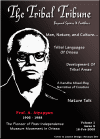Man, Nature and Culture
|
Environment is a complex whole of climatic, biotic and social and cultural factors. ‘Environmental Studies’ is, thus a multidisciplinary course, and there are now quite a good number of disciplines that are specialized in the study and research in particular aspects of environment. Advanced theoretical concepts and methodological technique have also been developed in the specific field of environmental and ecological science. The foundation course in environmental studies at the university level is, therefore, intended to give the students a hostile idea of environment in a generalized manner and make them aware of the problems and prospects of environment in our life. It may be noted here that as early as in 1901, much before Visva-Bharati became a central university, Rabindranath Tagore visualized the importance of environmental studies and founded at Santiniketan, Bramhacharyashram, and a school for children. Tagore founded the school in the model of Tapovan in ancient India. He introduced an open-air education in the midst of nature and the students were inspired to observe and study the natural environment of plants, animals, soil, climate, etc. but also the neighboring peoples, their society and culture. Tagore’s primary intention was to reinforce the moral relations of man with nature. Tagore’s observation of Indian Civilization is worth mentioning in this context. He observed, unlike other civilization on the globe that were developed in cities or urban centers, the civilization in India was developed in forests. The philosophers in ancient India who chose to live in forests formed the great tradition of India. The universal pattern of law, education, social customs, religious and culture norms were given shape to by the ancient philosophers. In the construction of the civilization due emphasis was given on peoples’ harmonic relation with natural ecology. ‘Environmental Studies’ has thus been embedded in the ideals and practice of education in Visva-Bharati from its very beginning. In ancient times the attitude of man towards nature was one of participant maintenance. Man and Nature tended to be unitary in primordial worldview. In the present context of globalization of Political economy and new science and technology the harmonic relation of man and nature is disintegrated to a great extent. This cannot be revived merely through formal education in environmental studies. Man belongs to the animal kingdom. He is, however, distinguished from all other animals for his unique potentiality in the construction of culture. It is man who can create develop science and technology, knowledge, skills and other devices to confront nature. Culture in this sense is the 'man-made part of environment'. It may broadly be viewed as an effective adaptive mechanism of man with other animals, plants and other natural and supernatural phenomena. But in this age of new technology man's relation with plants, animals, water, soil and even with other man are of 'technical order'. All these phenomena in nature are, to a modern man, nothing but mere things. The ‘moral order' that prevailed and guided earlier men in the maintenance of the harmonic relation between man and nature is no longer there for modern men are now inclined to exploit nature for economic and political gain; they are more interested to rule over nature. It is not denying the fact that we need nature for our habitat and economy; it is also not denying that we are trying to protect natural hazards and disasters caused specifically by human interventions and preserve its equilibrium. The ultimate result of our endeavors is, however, not unknown to us. Keeping in tune with history of development of civilization in India as well as the ideals and practice of Tagore centered around the educational system at Visva-Bharati the course of environmental studies may be so designed that the students be motivated to reconstruct the traditional 'moral order' in Indian society. It is now essential to construct a culture of participant – maintenance between man and nature and reinforce the original equilibrium through educational intervention. |
Photographs :
References :



